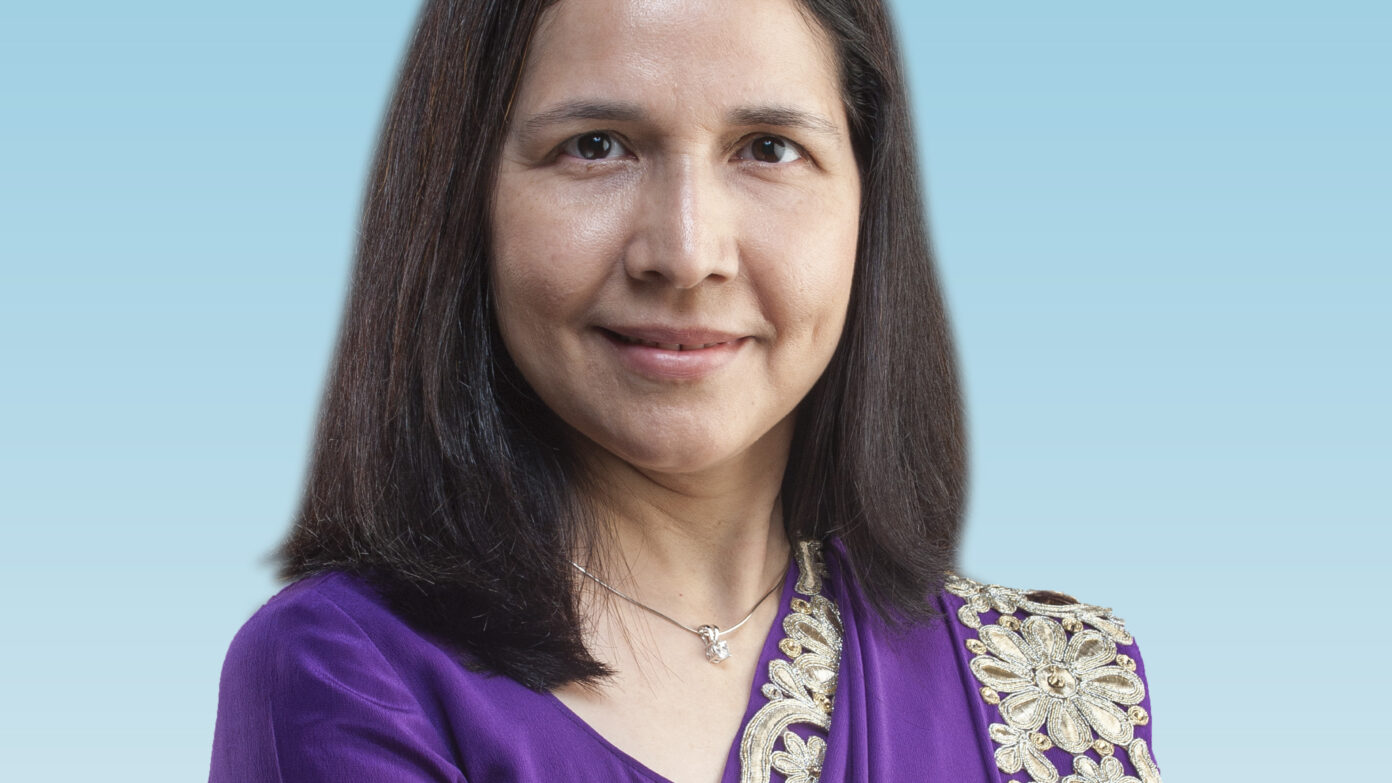Zarin’s story: “Persistence overcomes resistance”


Though I had a few offers, after becoming a chartered accountant, I wasn’t sure if I should join an accounting firm, work with clients, or join a financial services company. I didn’t know whether I wanted to be a manager, either, but over the years, our experiences and learnings help shape us.
My growth and success can be attributed to perseverance on my part, and learnings from great leaders. The people who have mentored me have played a huge role in recognising qualities in me that would suit leadership.
I remember once, in my previous job, I was sitting across the table from my General Manager, and I wondered aloud if I would ever reach her level. She reprimanded me for even doubting that I would and told me to never aim low. That advice has stayed with me all my life.
Now I’m a firm believer in the saying, ‘persistence overcomes resistance.’ Though natural talent can be an advantage, it cannot be a substitute for hard work.
My management style is feedback driven. I always give instant feedback to my colleagues, and I prefer to be candid when I do so. Such discussions should not be limited to once or twice a year.
My experience is that smart people, when given constructive feedback, will change for the better.
I remind myself that, as a manager, the onus is on me to set an example through my words and deeds. People work for people. It is my responsibility to inspire my colleagues and lead the way.
It’s important to always be willing to unlearn and relearn. I continue to do that still. An open mind is important, whatever your position in life. Open-minded leaders get the best out of their people.
Back when I was working at ICICI, I was asked by the managing director to start and run the rural and agribusiness at the bank. As a pure-bred wholesale banker, not knowing even the basics of agribusiness, this quickly became the most challenging thing I’d faced in my career. And that’s without even taking into consideration the fact that I was a woman, born and raised in a city!
I had to travel and make sense of what this business was about by engaging across the supply chain, from farmers to distributors. I started off with a small team of just about seven or eight people. At the end of three years, when I moved away from the agribusiness, the team was over 800 people.
I had many moments of fulfilment in that role: the first rural ATM in India, turning around loss-making branches, disbursing loans to farmers through cards, way back in 2004.
When I took over as the CEO of Standard Chartered India in 2016, our Retail Banking (RB) business was going through a difficult phase and needed a course correction. My challenge was to turnaround the business. This involved a sharp focus on execution, a more granular approach and continued investments in technology. Starting in 2019, I personally spearheaded this transformation strategy, and we have seen positive results, with the RB business back in profits in H1 2019.
Last year, we launched our retail digital banking initiative, which gives customers a seamless digital experience. Since the launch, approximately 90 per cent of all savings accounts have been opened through a digital interface.
As per the Finalta-McKinsey 2018 report, SCB India’s digital penetration is 12 per cent higher than the Indian average. Our overall digital adoption stands at 68 per cent, whereas mobile banking adoption is 45 per cent as of June 2019.
In recognition of our efforts, Standard Chartered was listed on the Government of India ‘Digi Dhan dashboard’ as one of the top banks in India that is contributing to India’s digital journey. We were also recently recognised as one of the top banks for customer experience in a report by Kantar, a leading data, insights and consulting company.
Studies have shown that women have the same career ambitions as men at the start and end of their careers, but the drop off is significant when they are in the 30-50 age bracket, which isn’t surprising given the peaking of family responsibilities during this period. Women leaving their jobs or taking sabbaticals isn’t uncommon in the corporate sector.
Other challenges exist, too, such as unconscious biases and gender stereotyping. However, I think the biggest challenge is that we as women think that our careers should take a backseat for the sake of maintaining a work-life balance and taking care of our families. We need to let go of this guilt; no woman should be expected to be Superwoman.
The change we want to see will come when organisations not only work towards more recruitment of women, but also better retention of them. They should assist with flexible working, child-care facilities, addressing unconscious biases, supportive conversations in the work place, and more organisational empathy as a whole.
I believe that having women in senior roles acts as a motivational factor for others. Women can inspire other women to break that glass ceiling.